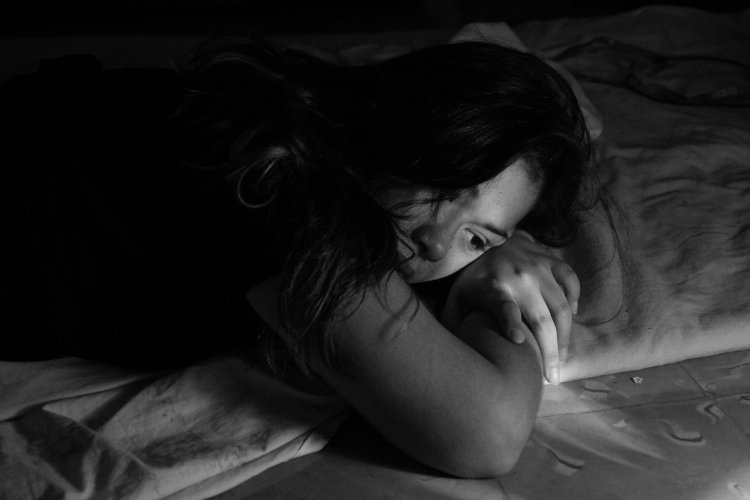The term “mental illness” has historically adopted negative connotations from society for years. Until recently, mental illnesses were neglected by medicine and deeply misunderstood. Finally, research is shedding more light on why mental diseases occur and how to treat them- but sometimes old stigmas die hard.
Perhaps these societal reputations developed due to the hurtful behavior that those with some mental disorders sometimes exhibit, causing pain to their surrounding loved ones. Sometimes this harmful behavior can also be classified as abuse.
With professional help, most mental illnesses are treatable if not totally curable (and thus, so are their consequential behavioral patterns). However, it’s helpful to stay “in the know” about whether your partner suffering from a mental disorder or someone else’s might be exhibiting abusive behavior.
Mental illnesses are notoriously difficult for the sufferer, but they’re also never an excuse for abuse.
What Is Emotional Abuse?
Emotional abuse, or psychological abuse, can be as destructive and distressing as other forms of mistreatment, like physical or sexual abuse. Emotional abuse can cause someone to doubt themselves and their perception of reality, and cause anxiety in their everyday life.
Psychological abuse is frequently about power and control. It can include intimidation, yelling/screaming, gaslighting, and isolation from one’s friends or family. Sometimes it isn’t easy for someone to determine whether they’re experiencing abuse by their partner. It’s also sometimes hard to see whether or not you are abusing someone else, too, due to your mental disorder.
Types of Mental Disorders
Diseases like Bipolar disorder, anxiety, depression, post-traumatic stress disorder (PTSD), narcissistic personality disorder, borderline personality disorder or antisocial personality disorder all have the potential to take a toll on someone’s well being. Often because of the inner turmoil they illicit, these diseases can also increase the risk of someone abusing their
Although mental illness and abuse are finely interconnected, they aren’t necessarily positively correlated.
It’s true: nothing in the Diagnostic and Statistical Manual of Mental Disorders (DSM-5) explicitly states that a psychiatric disorder directly causes a partner to be abusive in a relationship. However, there are a few diagnoses that can raise the risk that someone will abuse their significant other.
However, mental disorders do tend to affect all aspects of an individual’s personal life, such as their social life, family engagement, and intimate relationships. Abusive behavior in a close relationship and mental illness are two different entities, but they can be correlated.
Subsequently, abusive behavior occurs majorly in one’s intimate partner relationship, and, naturally, an abusive partner might not show their negative or harmful behavior with friends, colleagues, or family members.
The Abuser’s Mask
Sometimes abusers do so without knowing it, while others are well aware and decide to wear a “mask” for the outside world. Once someone is a target of their abuse, they might think that no one else will trust them since no one else has seen the abusive behavior. This also makes it easier for the abusive person to make their partner feel self-blame, which strengthens the partner’s tendency to isolate themselves from friends and family.
If your partner does have a mental disorder and is abusive to you, be sure to keep in mind that the mental disorder and abusive behavior need to be acknowledged separately by the abusive partner.
The abusive partner must lookout for help and create their strategy for managing their mental disorder and take full responsibility for their unmannerly behavior. If your partner does not own up to their wrongdoings, is not confessing to how much they’re hurting you, and is not looking out for expert help, then that’s a clear indication that your partner isn’t eager to change.
If that’s the case, then the abuse in the relationship inclines to endure and intensify over time.
Questions For A Victim Of Abuse
Below are the few questions that might help distinguish whether abuse is occurring. Keep in mind, however, that this damaging behavior comes in many forms. These questions might point you in a telling direction, though.
- Does your partner yell at others (friends, colleagues, family members) outside of your relationship?
- Does your partner make you check in to see where you’re at who you’re with, and even go as far as checking with others were about where you are?
- Does your partner reduce or verbally knock down others, including you?
- Does your partner encourage self-doubt or put down your perception and beliefs?
- Does your partner discourage you from participating in activities and hobbies you love?
- Do you feel as though you’re always “walking on eggshells”?
- Does your partner misplace blame, blaming others for their issues, or even blaming you for things that were their fault?
- Does your partner put pressure on others when they say something they don’t approve of?
If you answered yes to the maximum of these questions, then it’s likely your partner is abusive in some way. Of course, abuse presents itself in many ways, like gaslighting and other more ominous or subtle patterns.
Therefore, if you sense something is just “off” in your relationship or with your partner – mental illness and medical diagnosis or not – it’s best to seek professional help ASAP to get an outsider’s opinion on the manner.
Even if your partner does have a mental disorder, there is never an excuse for abuse. Abuse is a decision someone makes to preserve power and control over a partner. If a partner is unmannerly or upsetting to you, regardless of whether they have a mental disorder or not, they have no right to treat you in a negative or harmful way. Every individual deserves to have a loving, supportive, trusting, and safe relationship. And remember: your feelings are always valid.
Co-Occurring Mental Disorders
Substance abuse and mental illnesses, such as depression or personality disorders, are strongly correlated. Sometimes substance abuse can cause a psychotic reaction. People often abuse or drugs to self-treat an undiagnosed mental illness, to manage with problematic emotions, or to temporarily change their mood. But this only makes it worse. Misusing drugs causes some severe side effects, and in the long run, these side effects frequently worsen abuse.
Finding The Right Treatment
No matter what, if you or a loved one decides to seek help for their mental illness or psychological disorder (and hopefully for their abusive tendencies), always make sure that the program has appropriate licensing and accreditation. You’ll also want to be sure that they base their therapies on researched treatment methods. Furthermore, a program that prioritizes family and friends’ involvement can be extra helpful.
Always remember: getting help for any illness is just the first step to healing it. You or your loved one’s continued recovery depends on healthier emotional management strategies and making more sound decisions when dealing with life’s challenges.
If you feel threatened at any time by abuse, be sure to reach out to the National Domestic Abuse Hotline at 1-800-799-7233. Further, if you or a loved one is seeking help for their mental illness, be sure to reach out to our admissions team today.





































